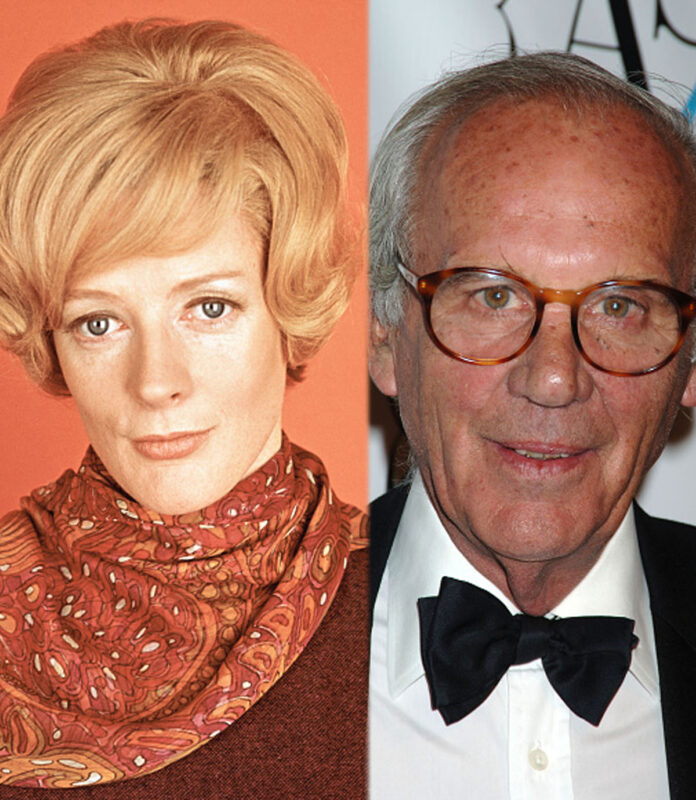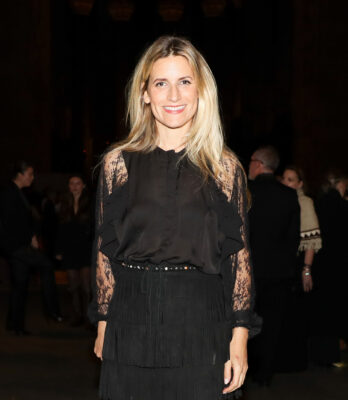
Movers & Shakers
A Tale of Two Icons
Life lessons from Dame Maggie Smith and Lewis Lapham—each a scion of their generation.
Farewell to two titans of the 20th century: Dame Maggie Smith and Lewis Lapham. Born mere weeks apart, these icons bowed out in quick succession this year.
At first glance, an odd couple. Yet both dazzled well into their eighties with razor-sharp wit, unmatched elegance, strength, and iconoclasm. As the leaders of the last century pass the torch to the next generation, let’s continue to remember how these risk-takers and independent thinkers have paved the way for the next generation.
Maggie Smith: celebrating an enduring legend
Dame Maggie Smith was one of the finest screen and stage actresses of her generation. Her award-laden career spanned seven decades—with her first of two Oscars coming in her thirties for The Prime of Miss Jean Brodie. Yet, after her death on September 27, 2024 at aged 89, outlets from Associated Press to Variety made a point to only trumpet (gasp) her recent roles in the celebrated Downton Abbey and Harry Potter franchises.
For a star who could perform both Shakespeare and Oscar Wilde on the stage, it’s only fitting that she saved her best for her third act, where her experience, wisdom, and sharp wit—both on screen and off—brought her the kind of attention usually reserved for women decades younger. And we should certainly celebrate the fact that Smith made an effort to stretch her talents and fortitude across two centuries. Her last credit was just last year in the comedy The Miracle Club. A week before her death, she had lunch with a female friend (and ate fish and chips) in London.
But her prime years were mighty impressive. Smith, reared in Oxford and educated at the tony Oxford School for Girls, made her movie debut in the 1950s and received her first Academy Award nomination playing Desdemona opposite Laurence Olivier in Othello in 1965 before winning for her role as the freethinking school mistress Jean Brodie in 1969. She married her co-star, Robert Stephens, and had two sons with him.
She and Stephens divorced in 1975, and a year later she wed playwright Beverley Cross (they were together until his death in 1998). The couple moved to Canada and she took on roles in Macbeth and Richard III at a repertory company. Smith landed her second Oscar for her supporting turn in the 1978 Neil Simon comedy California Suite with Michael Caine, Jane Fonda, and Alan Alda.
By 1990, Smith had amassed such a towering career that she received a lifetime achievement of sorts and was knighted by Queen Elizabeth. At the time, she was 56—an age when most actresses fade from the spotlight. A fresh-faced Demi Moore and Julia Roberts were the biggest movie actresses in Hollywood. The most popular television stars? Roseanne Barr and the cast of Twin Peaks.
Surely there was no room in the entertainment landscape for a spiky dame who could recite Noel Coward.
But Smith, not ready to fade, decided to play to her strength: an elegant-yet-formidable screen presence. She memorably portrayed the Reverend Mother of St. Katherine’s Parish (and went habit-to-habit with Whoopi Goldberg) in the 1992 summer blockbuster Sister Act and its 1993 sequel.
In 1996, she elicited laughs as an A-list socialite in The First Wives Club and convinced Sarah Jessica Parker’s floozy character to overpay for an item at an auction because “Jackie O. had one just like it!” Then, along with many of her British thespian peers, she went to Hogwarts. As Minerva McGonagall in all eight Harry Potter films, she perfectly embodied the Gryffindor head with a blend of empathy and sternness.
In a remarkable twist, Smith gained a new legion of fans in her seventies thanks to the acclaimed PBS period drama Downton Abbey. Yes, her entitled and acid-tongued Dowager Countess of Grantham was hilariously out of touch (“What is a weekend?”). But she was also the heart of the Crawley family and the strong-willed society grandmother every viewer coveted. Smith picked up three Emmys for her performance.
Smith deeply mourned Cross’ death for years. “I don’t know. It seems a bit pointless,” she told Steve Kroft on 60 Minutes in 2013. “Going on one’s own and not having someone to share it with.” As for finding someone else? “Absolutely not. I . . . No way.” She was ambivalent about her latter-era fame as well, once noting her surprise and dismay at being recognized in supermarkets.
When asked about her legacy after being awarded The Evening Standard Icon Award, Smith blithely told the publication, “Everything’s an icon. If you have been around long enough you are an icon. A rather dusty icon, or a national treasure.” Not true, Dame Smith. Your amazing body of work and indefatigable spirit will surely shine on.
By Mara Reinstein.
Remembering Lewis Lapham: A Personal Reflection
Lewis Lapham, the renowned American writer and editor, was more than just a figure in the publishing world. Lapham, an insider with an outsider’s eye, bridged worlds while questioning them. As an acknowledged intellectual, he breezed in and out of many social circles—literary gurus, publishing powerhouses, earnest graduates, and preppie establishments. He was also a man I greatly admired for his conviction and integrity.
His dress sense was impeccable and he always appeared in some combination of blazer, button down shirt, trousers (he switched to shorts on the beach in the summer, keeping the blazer) and loafers. Under his arm, he carried a magazine or book and in his opposite hand, a ubiquitous and constant cigarette.
Lapham was the consummate observer. At parties he could be found at the side of the tent or outside the group, smoking and watching as proceedings unfolded, giving off an air channeling the 16th century Boswell. He was clearly comfortable being alone, but if you wanted to have a word with him, he would welcome you with a wry smile. Perhaps that was the secret to his success with young people—for all of his august abilities, he was imminently approachable. His kindness to those who were interested in his craft was perhaps his greatest quality.
He was very friendly to me. I can still recall my first serious conversation with him. I was 21 and had just graduated from college. I’d grown up with him in the summers in Newport, Rhode Island and used to see him at the beach. I had a copy of Master and Commander by Patrick O’Brian under my arm, having just written about the book’s inspiration, Lord Thomas Cochrane, for my senior thesis. We started chatting about the impact of O’Brian’s writing and I remember feeling a bit nervous initially that I might say something foolish to him but he was completely respectful of my thoughts—it felt like a path was opening.
That path continued to open for me. Mr. Lapham (he was always Mr. Lapham to me, never Lewis) helped me get my first internship in New York for Grove Atlantic and then wrote to his good friend, Michael Sissons of literary agents Peters, Fraser and Dunlop in London and got me a second one. These led to jobs in literary agencies and, eventually, journalism. An introduction into this world is invaluable and I don’t know if I would have gone into journalism if he hadn’t encouraged me to.
Years later, I joined Vanity Fair in London and I was reminded of Lapham’s commitment to his creed when he testified in the magazine’s 2005 libel trial against Roman Polanski. Although Condé Nast eventually lost the case, I was impressed by his willingness to put their professional reputation on the line for what he believed in.
Lapham’s generosity to journalists and his devotion to Elaine’s endured throughout his life. Even last year, he offered Digital Party an insider’s perspective on the legendary New York hotspot’s lasting appeal.
“Elaine was there every night,” he said. “She liked to introduce people. She had one celebrity writer and a non-celebrity writer. An actor to a director. She took pleasure in introducing people and in moving them up the ladder.”
Like Elaine, Lapham was a connector and insider who challenged his own circle. His legacy: the conviction that privilege demands scrutiny of the establishment and it is up its members to question and challenge.
By Daisy Prince.
Hero photo of Maggie Smith by Bettman/Getty Images; Lewis Lapham by Robin Platzer/Getty Images



